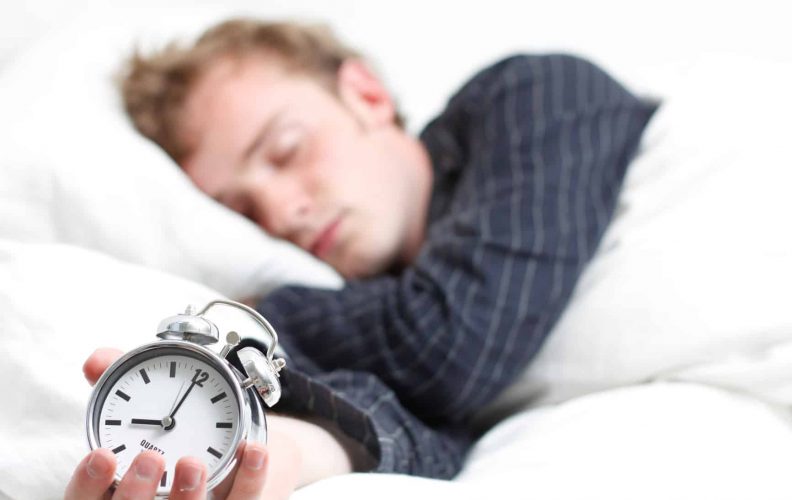The Link between Sleep, Stress and Diet
Disclosure: We use affiliate links and may receive a small commission on purchases.
 The Link between Sleep, Stress and Diet
thefitbay.com
The Link between Sleep, Stress and Diet
thefitbay.com
There is no doubt that sleep is critical for our body. It is sleep that allows our brains to recharge and our bodies to be fully rested so as to be able to function properly. Sleep also plays an important role in muscle repair and memory consolidation. Sleep deprivation can affect our memory, judgment and mood. People who have chronic sleep problems often develop long-term medical conditions such obesity and high blood pressure. Sleep deprivation can also be risky while driving and for people who work with machinery.
Recent evidence suggests a strong link between sleep, stress and diet. According to findings from the Stress in America Survey, American adults sleep an average of 6.7 hours a night. This is less than the minimum recommended level of at least seven to nine hours. Survey findings also show that 42% of adults have fair or poor sleep quality and 43% of adults report that it is stress that is the reason for their inability to sleep. 21% of adults report feeling even more stressed if they do not get enough sleep. 37% of the survey participants reveal that they feel tired or fatigued because of stress.

When questioned on the consequences of sleep deprivation, more than 50% say they feel lazy, more than 30 % feel crankier, more than 25% have a hard time focusing and more than 20% lack resonsibility. Adults with lower stress levels reported more hours of sleep a night (7.1 hours versus 6.2 hours). Those with less stress also reported better quality of sleep.
It has generally been observed that when people are under stress, they are unable to sleep or if they do sleep, it is generally for a short duration or disturbed sleep. The lack of sleep or the lack of a comfortable sleep makes the next day generally difficult to handle. All the stress and lack of sleep is then compounded by an intake of unhealthy food which is often the result of exhaustion and stress.
It is well known that people who have sleep exhaustion frequently drink lots of coffee and also have a tendency to eat sugary/high-carb foods to keep alert or to deal with their stress. It is important to understand that these foods only offer a temporary remedy. In the long run, this unhealthy lifestyle of little sleep and high-carb junk food items can lead to the development of medical conditions such as diabetes, high blood pressure, metabolic syndrome and obesity.
Lack of sleep has a significant association with eating habits. When people do not sleep well, this interferes with their regular eating habits. Tired and over-worked, over-fatigued individuals hardly have the motivation or the energy to go grocery shopping or to cook at home. They then resort to ready-to-eat junk foods which are extremely bad for health. When at work, they drink unhealthy amounts of caffeinated beverages and constantly eat sugary foods mainly because they lack energy and their body pushes them to eat foods which generate glucose which in turn is used by the body as a source of energy. This pattern of stress, no sleep and bad food often turns into a vicious cycle and people end up with poor sleep patterns and poor food consumption which in turn further increases their stress.

An important consequence of stress and lack of sleep is the development of an unhealthy relationship with food. When people become used to eating high-carb, high-calorie foods, their will-power to make better food choices also declines. They start using food as a way to deal with their stress and sugary foods become their go-to solution for modulating their negative moods, fatigue or stress. Lack of sleep and energy makes it difficult for them to have any self-control over what they eat. They eat when under stress. They eat when they are exhausted. They try to sleep but are unable to do so. This increases their stress and they eat more unhealthy food and so the cycle continues. The unhealthy relationship between stress, sleep and diet is worse in individuals who have very hectic lives, erratic habits and/or difficult relationships with friends, spouses or family members.
The goal should be to find a way to ease stress and sleep well. There are many strategies that one can adopt to reduce stress such as deep breathing, tai chi, meditation, spiritualism or even exercise. Once stress levels come down, sleep patterns can become more regular. When sleep improves, so does a person’s energy level, their thinking pattern and their motivation to make better choices when it comes to food and lifestyle.

Even organizations today emphasize the importance of stress relief and proper sleep for their workers and promote and encourage sleep awareness training and flexible scheduling. They realize that employees who are under stress and who do not sleep properly tend to have low productivity levels and high irritability. In some companies, stress management programs have become a standard practice where the goal is for employees to better understand the nature of stress and its effects on their health. These programs are designed to help workers improve their stress coping skill. Some common strategies include muscle relaxation, biofeedback, medication and cognitive restructuring.
Many studies done on people who work late-night shifts also reveal that inadequate sleep promotes unhealthy eating. People who are under stress and who do not sleep properly also have lower physical activity levels. This is ironic since it is well documented that one of the best relievers of stress is exercise – any exercise is better than no exercise. Even walking is a great form of exercise as it allows one to enjoy nature, relieves stress, helps to lose weight, and is safe and free.
Overall, it is evident that there is a strong connection between stress, sleep and diet. Problem in one area can result in an increased problem in another area. Therefore, the trick is to find a balance and to ensure you have healthy eating habits, low stress levels and sufficient sleep for your body to function properly.










